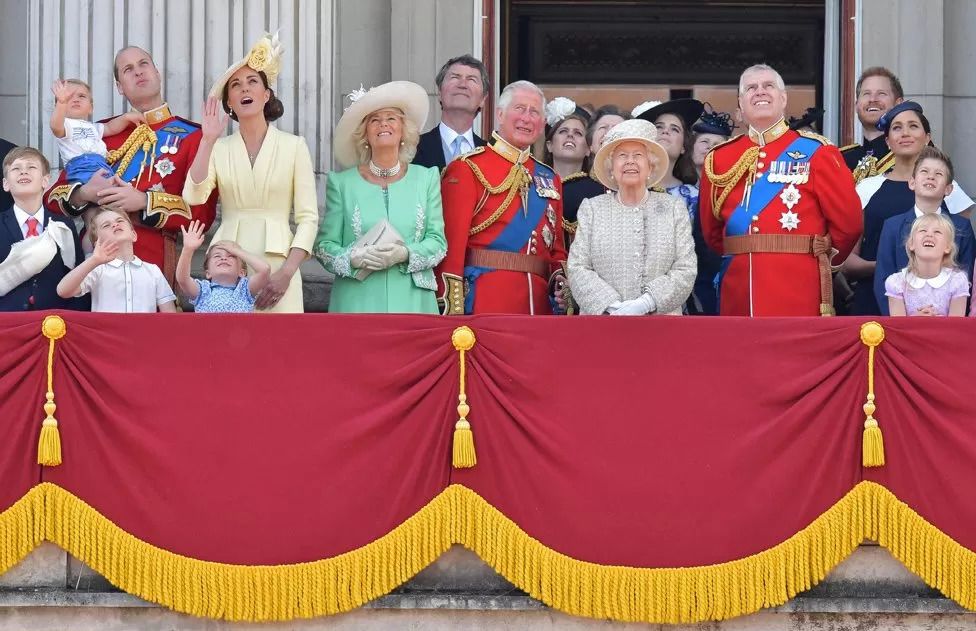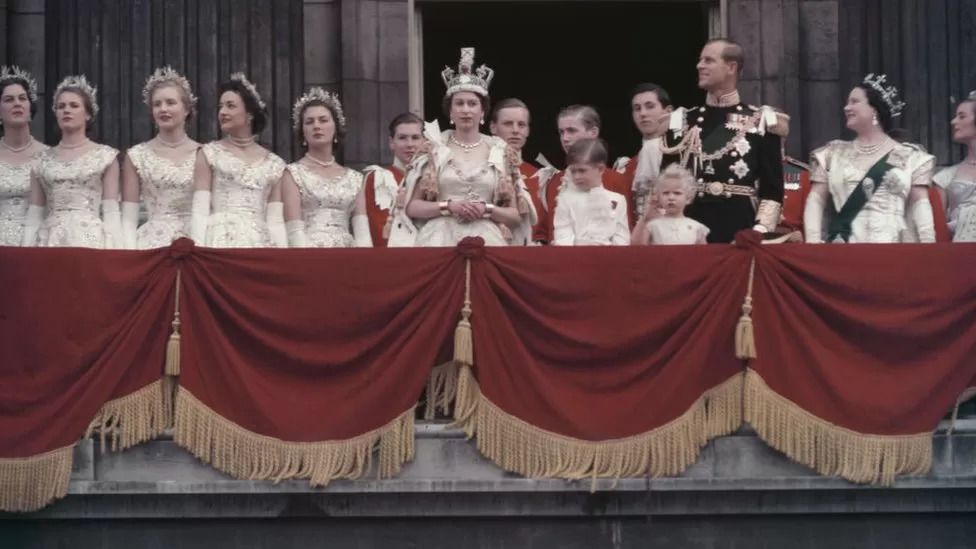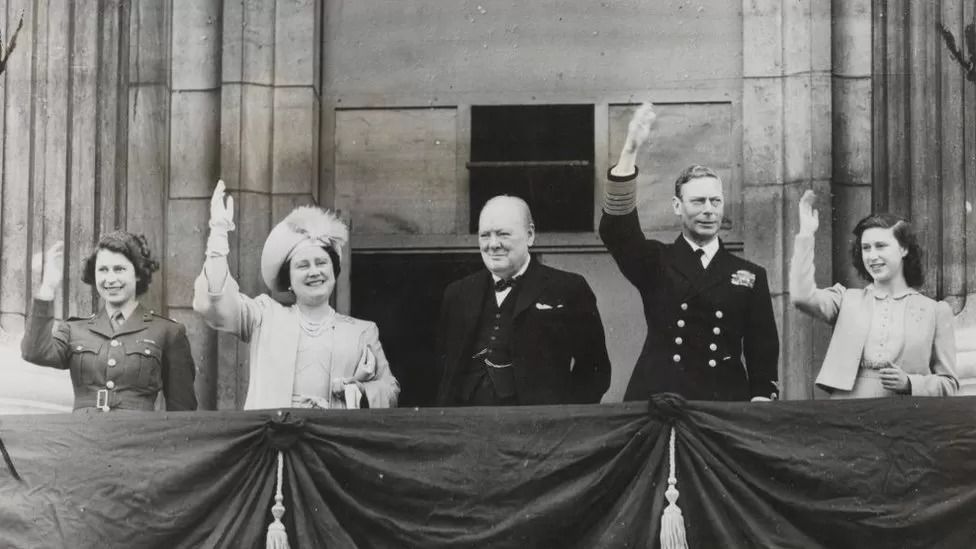
Buckingham Palace balcony guessing game goes on
This will be one of the most iconic images of the day so nothing will be accidental about how it is staged.
The lack of certainty about who will appear on this royal stage has been presented as keeping something back for the big day.
Or perhaps it might be a bit of news management to avoid "Prince Harry banned from balcony" headlines? Or more dramatically could there be options being kept open for last-minute, surprise changes?
The balcony has become a key moment for the Royal Family to send a message.
On Saturday afternoon, after the procession gets back from Westminster Abbey, the curtains will be pulled back and a number of invited guests will step out on to the palace balcony, looking out over the gates and at the crowd below.
There has been an expectation this will be used to highlight the core group of "working royals" - those family members who carry out official duties on behalf of the King.
As well as the King and Queen Consort, that would include close family such as the Prince and Princess of Wales, the Duke and Duchess of Edinburgh and Princess Royal, along with other working royals such as the Duke and Duchess of Gloucester and the Duke of Kent.
That approach would make a distinction from "non-working royals" - specifically Prince Harry and Prince Andrew, who a year ago were banished from the most recent balcony moment, for the late Queen Elizabeth's Platinum Jubilee.
 The balcony line-up of the Royal Family in 2019 for Trooping the Colour
The balcony line-up of the Royal Family in 2019 for Trooping the Colour
No such announcement has been made for the Coronation, although it has been confirmed that neither Prince Harry nor Prince Andrew will have any formal role in the ceremony in the Abbey.
For the Platinum Jubilee in 2022 there were 18 people on the balcony, including the late Queen, and her second appearance on the balcony in the closing moments of the weekend became one of the most poignant images.
Numbers had been cut back even further for the Diamond Jubilee in 2012, when only six people were on the balcony, in a show of frugality at a time of economic austerity.
Prince Harry will be attending the Coronation, and he's expected to make a quick turn-around before returning to the US, but there would be no bigger platform than the balcony for sending an image of a family reunited.
The balcony, like a framed photo in the royal album, could also be a way of emphasising the line of succession, bringing together the King, Prince William and his son Prince George.
 Queen Elizabeth II made six balcony appearances after the coronation
Queen Elizabeth II made six balcony appearances after the coronation
Another possibility might be several appearances with different line-ups, like the family group permutations of wedding photos.
In 1953 for the late Queen Elizabeth's coronation there were six separate balcony appearances, with some of these including more than 30 family and friends.
Such a crowd scene would be unlikely to be the message for a modern monarchy wanting to project a smaller, more cost-conscious image.
Monarchs have been stepping out on to the palace balcony since Queen Victoria in 1851, using it as a showcase where royalty and the public can acknowledge each other.
 Winston Churchill was one of the few politicians to appear on the balcony, seen here in 1945
Winston Churchill was one of the few politicians to appear on the balcony, seen here in 1945
Although it wasn't until the 1930s that the Royal Family began to wave back - and with a leap towards modernity, from the 1980s the balcony became the place where royal weddings were celebrated with a public kiss.
And even though there are no fixed rules, the palace balcony has acquired its own rituals. The monarch is almost always at the centre, with others fanning out around them in a courtly pecking order.
Traditionally it's only married partners of the Royal Family who appear, not current girlfriends or boyfriends, suggesting the sense of this being a permanent record.
This is very much a royal moment, but there have been rare occasions when political figures have appeared.
Wartime prime minister Winston Churchill was on the balcony to take the salute of the crowds when victory in Europe was declared in May 1945.
In 1938 prime minister Neville Chamberlain went on to the balcony after the signing of the ill-fated Munich Agreement with Nazi Germany.
On Saturday afternoon, we'll see who appears beside King Charles and Queen Camilla.










